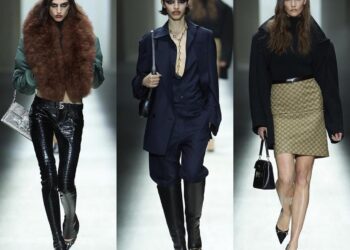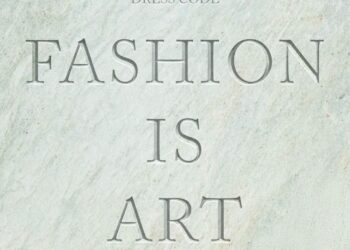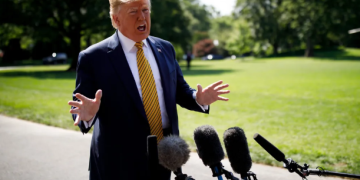In the summer of 2025, the fashion world witnessed a clash of denim titans. Two iconic American brands, American Eagle and Gap, launched campaigns that sparked intense debate, showing the broader cultural conversations about inclusivity, representation, and the power of advertising. While American Eagle faced backlash for its controversial approach, Gap’s response was hailed as a masterclass in authentic marketing.
In this article, I break down the denim drama that took the internet by storm.
The American Eagle Controversy: “Good Genes” or Tone-Deaf Marketing?
American Eagle’s campaign featuring actress Sydney Sweeney aimed to be playful but quickly ignited a firestorm. The ad’s tagline—“Sydney Sweeney has great jeans“—relied on a pun comparing “jeans” to “genes,” with Sweeney stating, “Genes are passed down from parents to offspring, often determining traits like hair color, personality, and even eye color. My jeans are blue” . Critics accused the brand of evoking eugenics and white supremacy, particularly because Sweeney, a blonde-haired, blue-eyed actress, was presented as the epitome of “good genes”. The ad’s camera angles, which focused on Sweeney’s body, were also criticized for perpetuating the “male gaze” rather than empowerment.
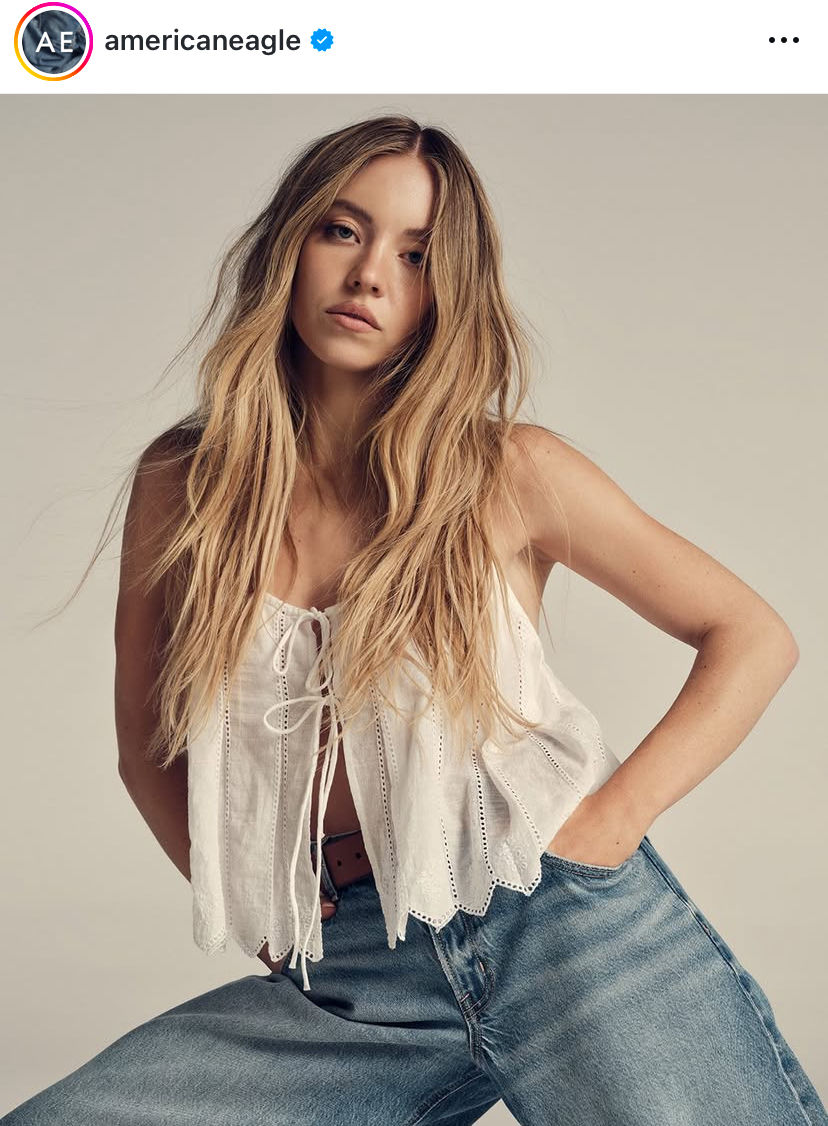
Despite the backlash, some defended the campaign as a clever attempt to break through the noise. Advertising expert Allen Adamson noted that provocative ads can be effective for commoditized products like jeans, stating, “People remember disruption. People remember the edge”. However, the controversy overshadowed the message, and American Eagle saw no measurable sales lift despite the attention.
Gap’s Response: Inclusivity and Joy Take Center Stage
In stark contrast, Gap’s “Better in Denim” campaign, launched on August 19, 2025, featured the global pop group Katseye—a diverse six-member ensemble with roots in the U.S., Switzerland, South Korea, and the Philippines . Set to Kelis’s 2003 hit “Milkshake,” the ad showcased dancers of various ethnicities moving in sync to choreography that symbolized community and self-expression . The campaign emphasized individuality, with Gap declaring, “Your individuality. Your self-expression. Your style. Powerful on your own. Even better together”.
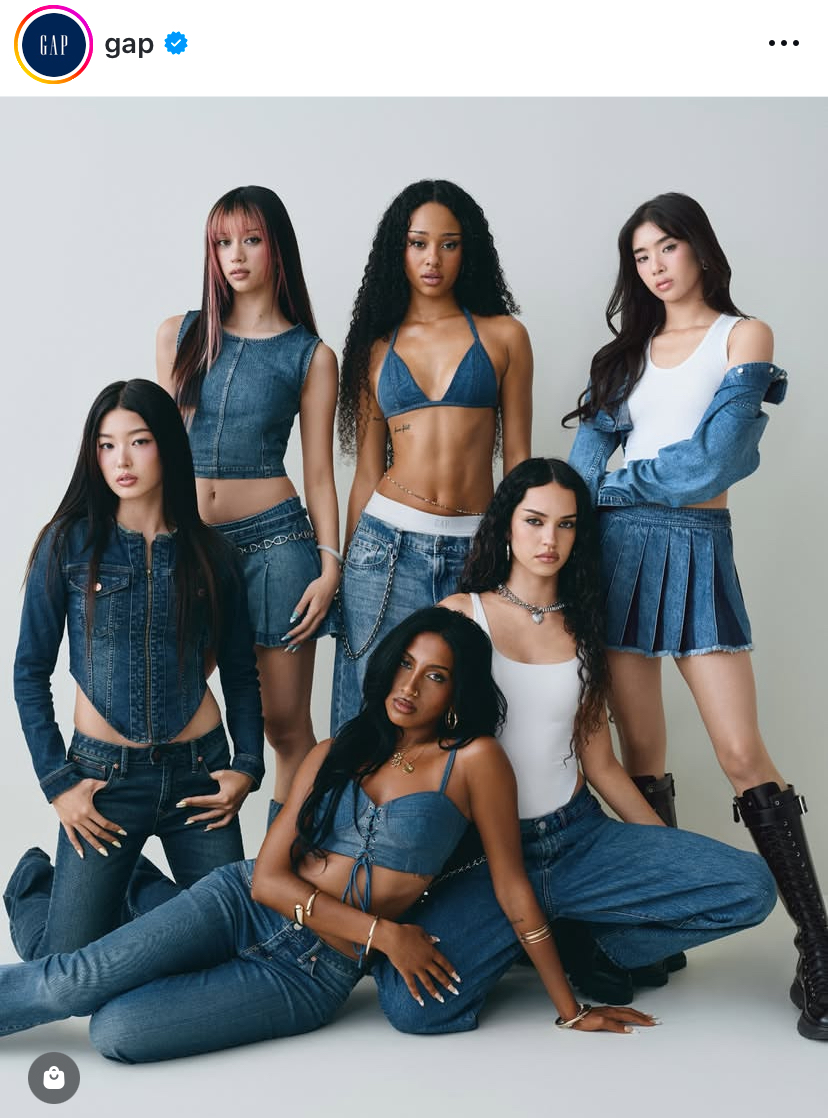
The response was overwhelmingly positive. Social media users praised the ad for its authenticity and diversity, with comments like, “I like these genes better”—a direct nod to the American Eagle controversy. Gap’s campaign quickly went viral, amassing over 20 million views on Instagram and becoming the brand’s most successful ad to date .
Key Lessons from the ‘Denim Wars’
- Authenticity Thrives
Gap’s campaign resonated because it aligned with the brand’s history of music-and-dance-centric marketing (e.g., past collaborations with Madonna and SZA) while embracing Gen Z values like inclusivity . American Eagle’s approach, however, felt forced and out of touch with evolving social norms .
- Diversity Isn’t a Trend—It’s a Necessity
Gap’s intentional representation of diverse cultures and body types felt organic, while American Eagle’s reliance on a homogeneous ideal backfired . As one brand strategist noted, “Testing messaging will help manage risks while still boosting relevance”.

- Timing and Cultural Context Matter
Gap’s ad was likely in development before the American Eagle controversy, but its release timing allowed it to serve as a subtle rebuttal. The use of “Milkshake”—with its iconic lyric “It’s better than yours”—was seen as a clever jab at competitors.
- Polarization vs. Positivity
While American Eagle’s controversy generated buzz, it didn’t translate into sales or long-term goodwill. Gap’s focus on joy and unity, however, created a sustainable positive impression.
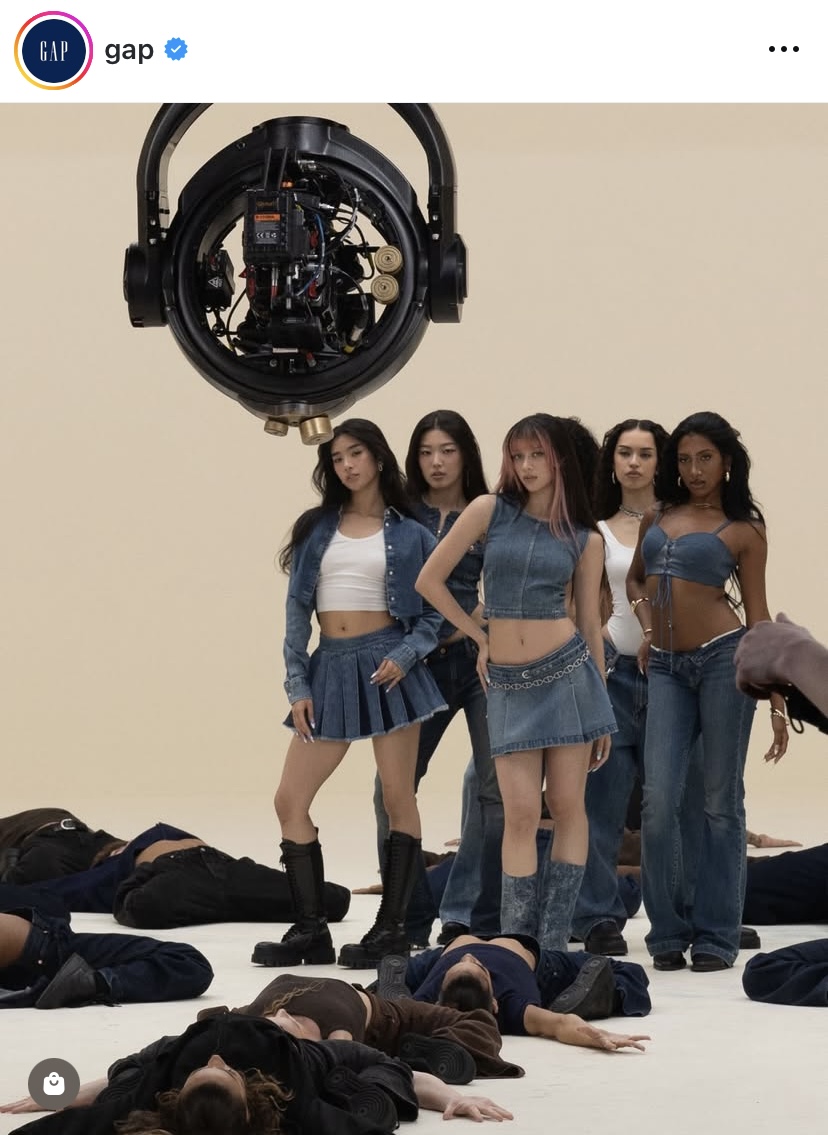
The Bottom Line: Which Ad Won the ‘Denim Wars’?
Gap’s campaign not only won the social media engagement war (with 2.01 million interactions compared to American Eagle’s 306,100) but also captured the cultural moment. By celebrating diversity and self-expression, Gap positioned itself as a brand for the future, while American Eagle’s misstep highlighted the risks of tone-deaf marketing. As one fan succinctly put it, “American Eagle could never“.
In an era where consumers are consistently demanding authenticity, the denim wars of 2025 remind us that fashion advertising isn’t just about selling products, but rather about telling stories that resonate deeply with the world we live in.


